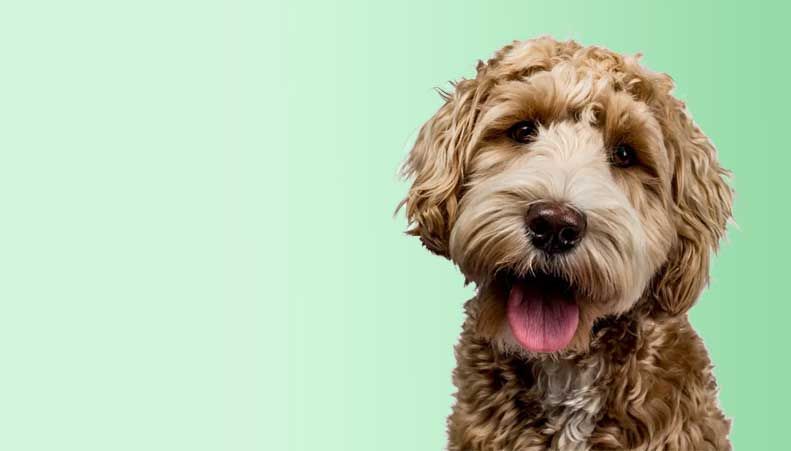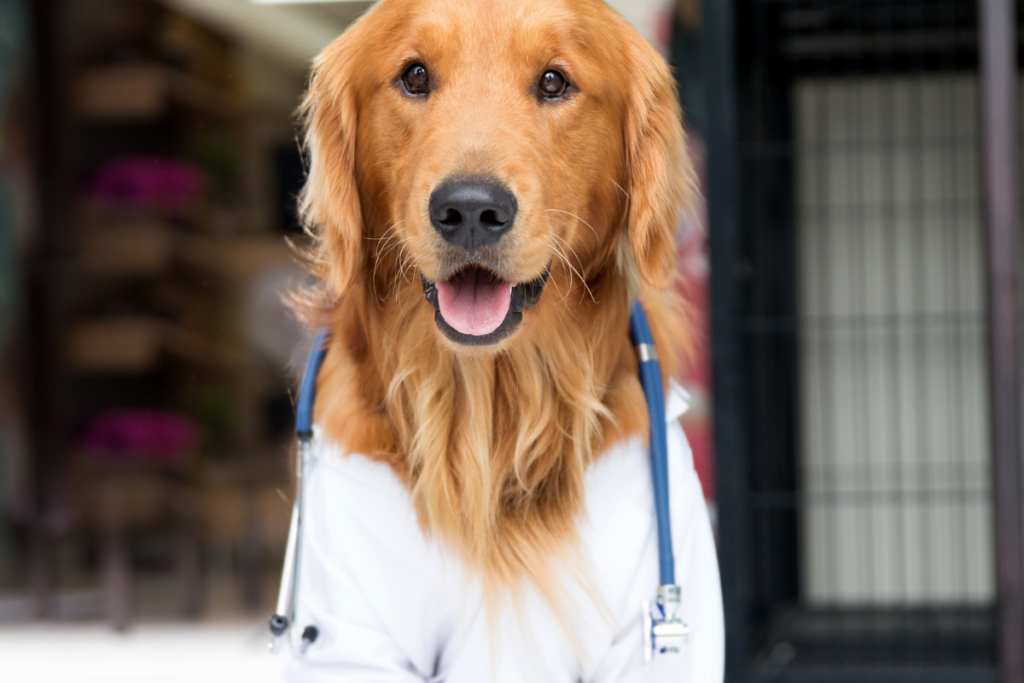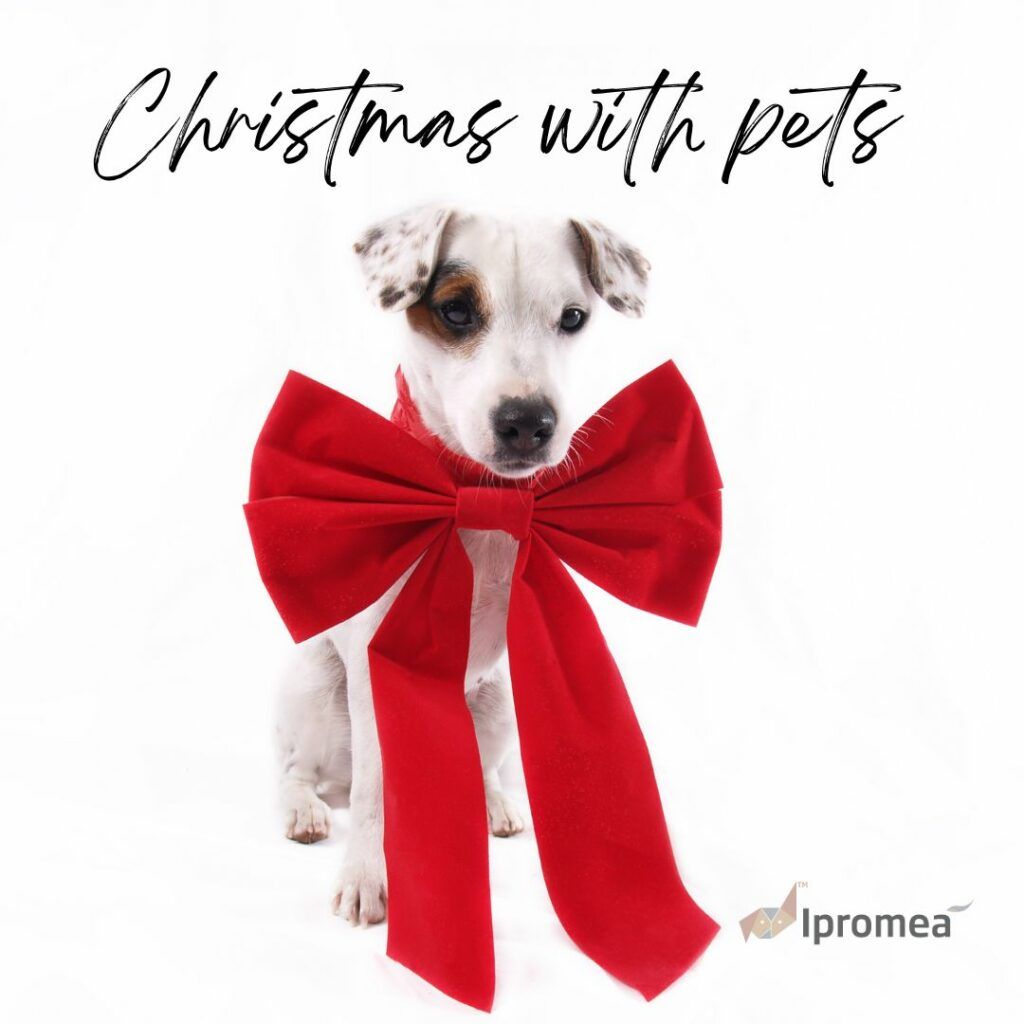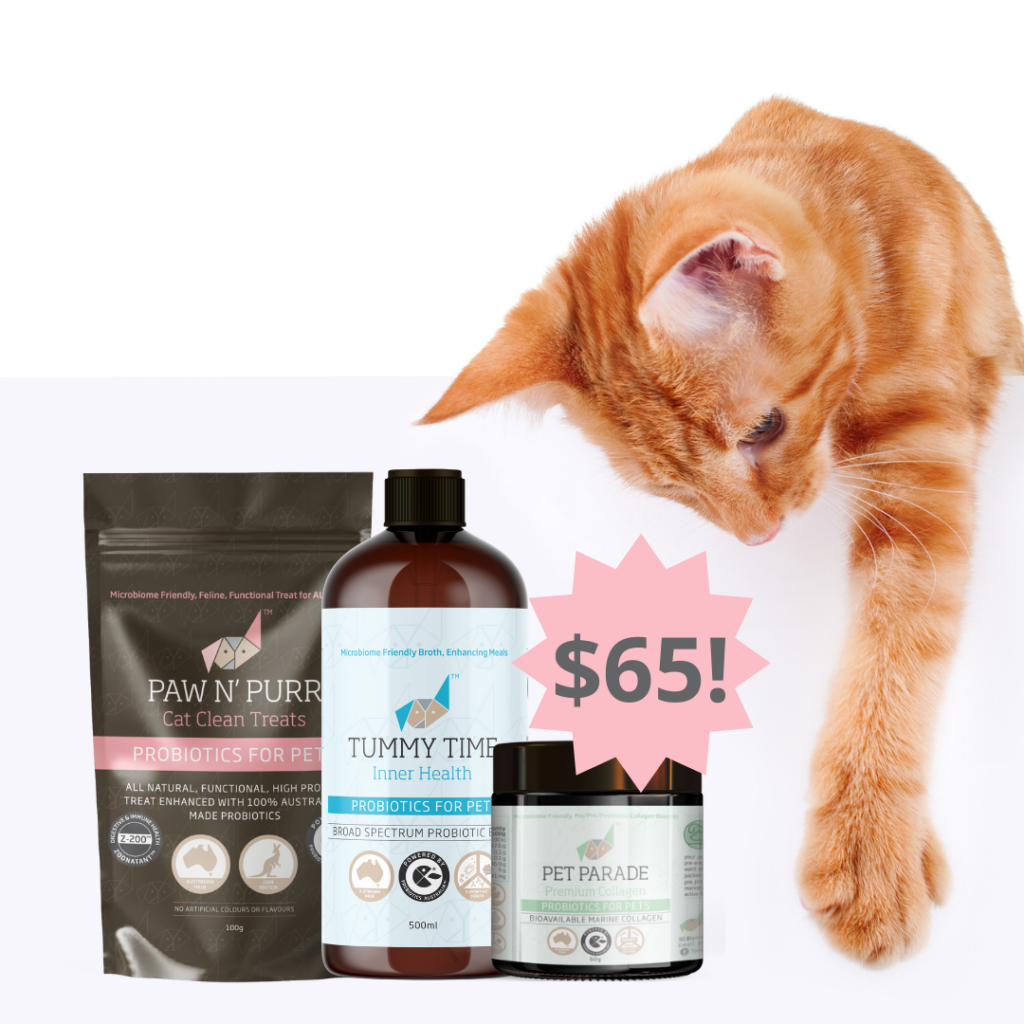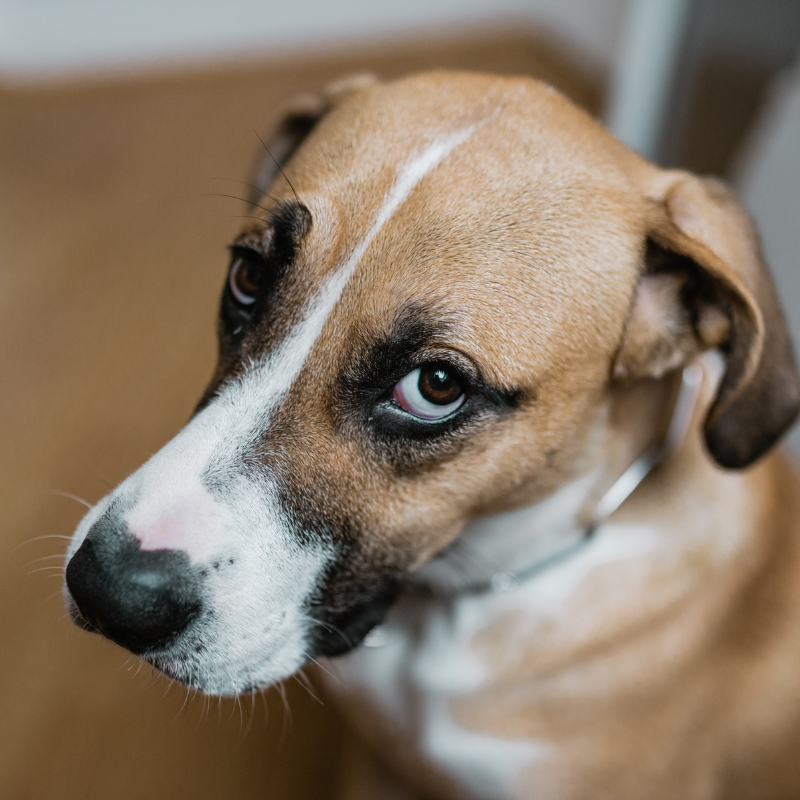Digestive System
Ipromea supports paw digestive health, ensuring optimal gut function for pets. With its carefully selected ingredients, it promotes a healthy digestive system, reducing discomfort and improving nutrient absorption. Regular use of Ipromea helps maintain overall well-being, keeping your pet active and happy with a healthy, balanced digestive tract.

Probiotics for Dogs: In recent years, probiotics have taken centre stage in human health, celebrated for their ability to restore and maintain a healthy balance of gut flora. But did you know that these beneficial bacteria can also play a pivotal role in your dog’s well-being? Just like us, our furry friends can reap immense health benefits from a well-balanced microbiome, leading to a happier and healthier life. Let’s dive into how incorporating probiotics into your dog’s diet can make a significant difference.
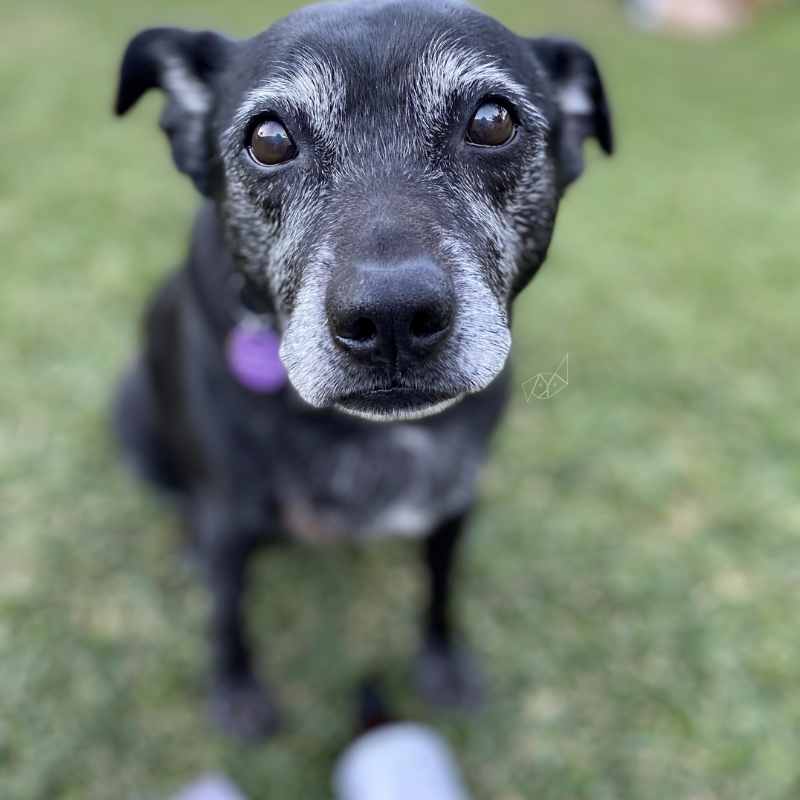
Probiotics for dogs explained There are many benefits to giving your dog probiotics. But first, we must explain what probiotics are and then we will talk about what they do. Probiotics are live microorganisms, which consist mainly of bacteria and some yeasts that live in the gastrointestinal system. These healthy gut bacteria balance the internal environment to prevent disease and promote health and well being in your pet. Probiotics that have been proven to work and are safe for dogs include strains such as: Bifidbacterium animalis subsp. lactis Lactobacillus acidophilus Lactobacillus plantarum Lactobacillus rhamnosus Lactococcus lactis subsp. lactis Enterococcus Faecium A probiotic doesn’t need to include every bacteria strain listed above to work, but it should contain at least one or two of them. What are the benefits of giving your dog probiotics? A major part of your pet’s health derives from the intestine. The ‘healthy gut’ is known to be crucial for the physiology and wellbeing of your dog. Any disturbances within the gut microbiota may lead to the development of a multitude of diseases and disorders e.g. diarrhea, allergies, obesity, and stress symptoms. Your body is full of trillions of different types of bacteria, viruses and fungi, collectively known as the microbiome, and just like us our dogs have their very own. But are probiotics good for dogs? The short answer is yes, probiotics provide benefits to the bacteria in the digestive system, balancing out the microbiome so that gut health can be maintained. A healthy balance of bacteria is important for your dog’s immunity. There are certain signs to look out for indicating your dog’s gut is unbalanced. What are the symptoms to look out for when your dog’s gut is out of balance? There’s a range of health issues that can arise when the microflora (or good bacteria) in your dog’s gut is unbalanced, so here’s a few signs to look out for: Gas Diarroea Constipation (hard stools) Bloating Stomach pain or discomfort UTI’s Yeast infections Ear infections or smells Bad breath Skin issues or loss of fur Overweight/obese or underweight Behavioral/mood disorders Probiotics can help with your dog’s general wellbeing, but it’s important to consult with your veterinarian if you are concerned. It’s always good to check if there’s something more sinister going on if your pooch is really unhappy. What are the causes of unbalanced bacteria for dogs? There’s a range of external and internal factors that can lead to your dog’s unbalanced gut. Bacteria shifts in the digestive system can be caused by some of the following: Ageing Toxins Drugs/medications Antibiotics A high starch or carbohydrate diet A high fat diet Drinking water Sleeping/living hygiene What’s the best type of probiotic to give your dog? The type of probiotic you give your dog really depends on their individual health and needs. Probiotics for dogs come in many forms. How long does it take for probiotics to work in dogs? Every dog is different. Some dogs respond in a day or two, and others may take up to 6 weeks with regular use. If you’re not seeing improvement by a few weeks, you may have the wrong product or you may need to change your dosage. One thing you need to know is that giving your dog a human probiotic probably won’t help with their health and wellbeing. Probiotics and postbiotics for pets come in different strains and there are some strains better suited for humans and some that are better suited to animals, or more specifically dogs. If your dog loves to get treats – you can find some clean treats with the added benefit of probiotics. Trust us, your dog will be begging for more! Alternatively, you can get probiotic broths or powders that can be added to their regular meals and your furry friend will be getting all the benefits without even realising it! Another way dogs can get a dose of probiotics, especially if they are having skin/fur issues, is via a probiotic enhanced shampoo . Ipromea is powered by Probiotics Australia, see more info here: https://www.probioticsaustralia.com.au/pet-and-animal-health/#pet-probiotics Gut health for your dog should be a top priority With their digestive system making up around 80% of their immune defense, gut health for your dog should be a top priority. Gastrointestinal disorders are one of the main reasons owners bring their pets to the vet for healthcare. As you know, owning a pet can be expensive. Especially if there are any health complications. That’s why giving your dog probiotics should be one of your top priorities, because it means keeping your dog healthy, improving their immune system and general health. A probiotic can help restore and maintain this balance of good and bad bacteria and let the digestive system operate at its full potential. Not only are you providing benefits to your dog if you give them probiotics, but you are also benefiting from them too. The health and well-being of your dog, just as their owner, depends on the gut microbes. We share a large proportion of microbiota with our pets living in the same household. Sharing bad bacteria can lead to problems for everybody – furry family members and all. It’s time to restore you dog’s natural microbiome from head to tail and everywhere in between. For more information about quality Australian made and manufactured probiotics for pets products, please view Ipromea’s range here: https://ipromea.com.au/products/
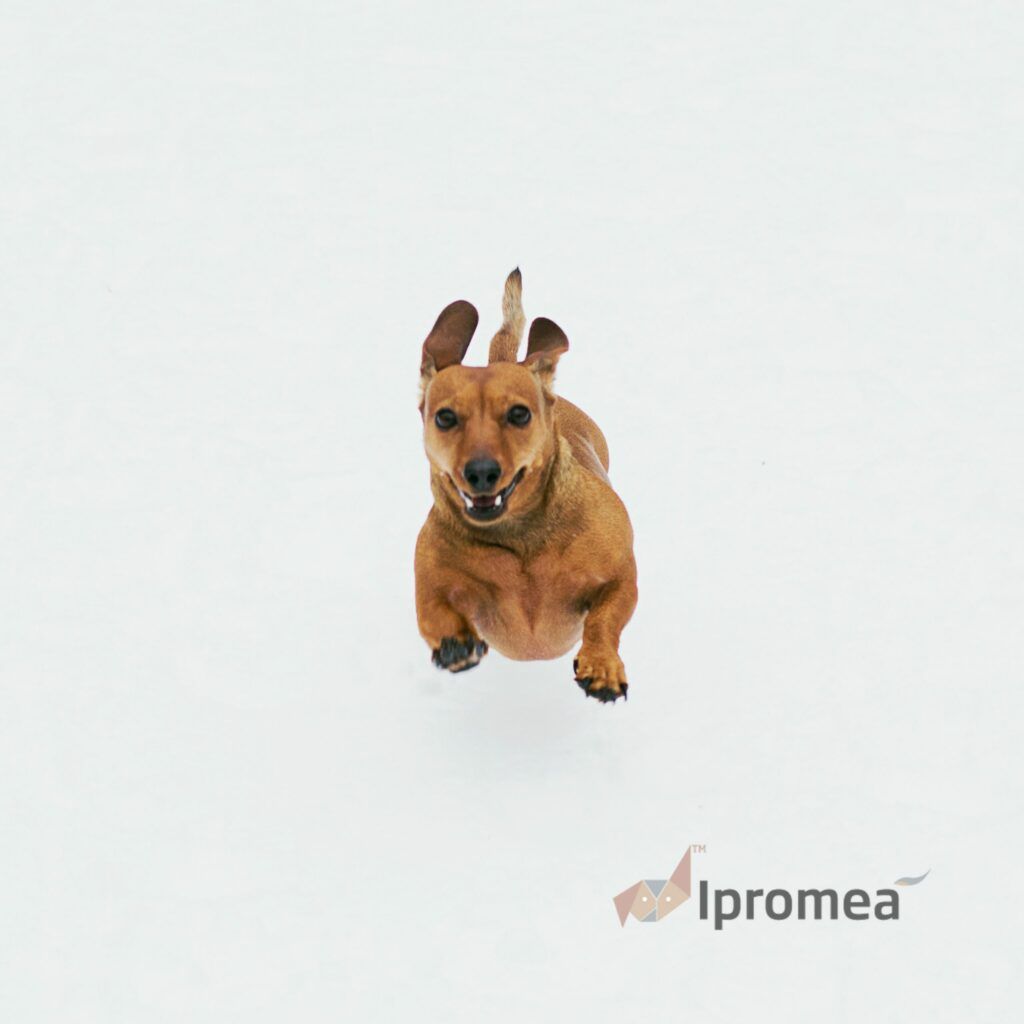
Everyone knows that dogs are man’s best friend. Most pooch parents would consider their dog a beloved member of the family due to their loyal companionship and let’s not forget those happily wagging tails every time we walk in the front door! Like any parent, dog owners often over-think every little quirk their dog displays, but how can you tell if your furry friend is truly healthy and happy? In addition to regular check-ups with your family vet, there are various signs to indicate your dog is happy and healthy. For your benefit, the team at Ipromea have put together list of the top five indicators of a healthy dog below: 1. Shiny and clean coat A healthy pet will generally have a shiny, lustrous and sparking coat due to natural oils and optimal shedding cycles. If your pet is licking, scratching or chewing its coat more than usual, it can be a sign of skin allergies, unbalanced gut biome or the presence of fleas or lice. Try regularly bathing your pooch in a good quality pet shampoo (such as Ipromea’s Woof Wonder) for a healthy, balanced skin and coat. In addition, feeding your dog a healthy diet and using a good quality collagen supplement (Ipromea’s Pet Parade) will mean your pooch will not only look and smell amazing, they will also be feeling comfortable and happy. 2. Fresh Breath A healthy mouth is crucial to a healthy pet. Clean smelling breath and relatively clean teeth are signs of good health. Try brushing your dog’s teeth, providing treats like bones (did someone say Beg n’ Bark?) and dental chews and keeping them on a high quality diet. 3. Optimal Weight Obesity is one of the top concerns for veterinarians and it causes many of the same problems in dogs as it does in humans such as heart disease, diabetes, bone and joint disease and various cancers. As tempting as it is to share your leftovers with your furry friend (who can deny those puppy dog eyes begging for food at the dinner table?) it is very important to ensure you maintain good portion control and provide healthy treats and meals to help maintain a healthy weight. The good news is that Ipromea’s unique probiotic product range aids in balancing the natural gut microbiome, meaning weight can be controlled and your pet can continue living its best life! 4. Regular and Healthy Bowel Movements One of the best ways to tell if your pet is healthy is to check out his poop! Healthy bowel movements indicate a healthy pup. Anything out of the ordinary could be due to a change in diet, stress, allergies or other diseases such as cancers, bowel obstructions and many other nasties. Like humans, pet’s immune systems are 80 per cent dictated by what’s going on in the gut, so utilizing a regular routine with probiotics like Ipromea isn’t a bad idea! 5. Alert and engaged A healthy and happy dog is eager to spend time with their family. Greeting you at the door, bringing you their favourite toys to play with, making eye contact and just being generally excited (about just about everything) is a sign your dog is in good shape. If your dog starts suddenly spending time alone, seems disengaged or sleeping more often, it may be the first sign of a health issue. Listen to your gut (pun intended) and if you feel something isn’t quite right, seek advice from a vet. You are your pet’s voice and you are his best advocate.
